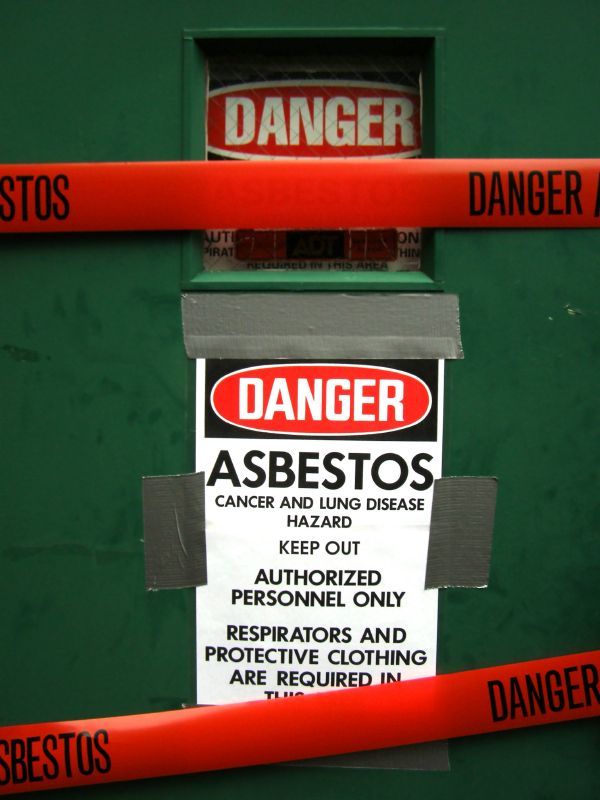Top Class Actions’s website and social media posts use affiliate links. If you make a purchase using such links, we may receive a commission, but it will not result in any additional charges to you. Please review our Affiliate Link Disclosure for more information.

Majority leader Justice Susan Owens argued that the plaintiff in the asbestos lawsuit, Gary Walston, did not even question whether or not the defendant had actual knowledge of the certainty of the asbestos-related disease. Boeing could not, therefore, be held responsible for deliberately putting Walston in a dangerous work environment.
Justice Charles Wiggins provided a dissenting opinion, saying that it was the duty of the court to make the workplace safe: that Boeing knew the risks associated with asbestos and willfully disregarded the knowledge that its employees were being injured. Wiggins argued, “There is no way to know with absolute certainty that an exposed individual will even contract a disease,” also pointing out that proving causation of many diseases is an impossible task.
Walston worked for Boeing from 1956 to 1992 and was diagnosed with mesothelioma in 2010. While at Boeing, he allegedly worked with and around asbestos-containing products. However, there was a specific time period in 1985 where pipe insulation (containing asbestos) was being repaired above Walston’s workstation.
Walston alleged in the asbestos lawsuit that Boeing did not provide protective clothing or respirators for the employees working below the asbestos. Allegedly, when the workers asked for these protective tools, Boeing told the workers to simply be careful of where they were working and return to their tasks. Because there is no certainty that asbestos exposure will lead to injury, the asbestos mesothelioma lawsuit failed under the Birklid standard, the state Supreme Court ruled.
The Birklid Standard
Both Wiggins and Owens referenced Birklid in order to strengthen their positions. Birklid v Boeing Co. was a lawsuit in 1995 that established a firmer definition of “deliberate intent” in a case of Boeing being negligent in their chemical safety. The Birklid standard came to determine whether or not an employer knew the certainty of an injury (disease included) and disregarded it.
The “certainty of an injury” was the main source of debate in this case. Owens argued that Boeing did not have certainty of asbestos-related disease. Wiggins argued that the intent of the legislature was to encourage workplace safety and that to require absolute certainty of a cause of disease in order to meet the Birklid standard went against the need for the standard in the first place.
Asbestos Lung Cancer
The primary cause of lung cancer is smoking; however, asbestos is a serious contributor as well. The number of asbestos lung cancer lawsuits is growing. Many of the companies that are responsible for asbestos exposure and are being accused of negligence might try to claim that smoking was the main cause of the plaintiff’s lung cancer. However, many plaintiffs have been able to successfully argue that asbestos was the cause and have been given compensation.
Most people are diagnosed with lung cancer in the late stages, making it even harder for plaintiffs like Walston to prove the cause of their lung cancer. Though Walston was unable to prove deliberate intention, many other asbestos lung cancer plaintiffs have been successful. Some have been awarded millions of dollars in asbestos lung cancer lawsuit settlements.
In general, asbestos lung cancer lawsuits are filed individually by each plaintiff and are not class actions.
Do YOU have a legal claim? Fill out the form on this page now for a free, immediate, and confidential case evaluation. The attorneys who work with Top Class Actions will contact you if you qualify to let you know if an individual lawsuit or class action lawsuit is best for you. Hurry — statutes of limitations may apply.
ATTORNEY ADVERTISING
Top Class Actions is a Proud Member of the American Bar Association
LEGAL INFORMATION IS NOT LEGAL ADVICE
Top Class Actions Legal Statement
©2008 – 2024 Top Class Actions® LLC
Various Trademarks held by their respective owners
This website is not intended for viewing or usage by European Union citizens.
Get Help – It’s Free
Join a Free Asbestos Lung Cancer Class Action Lawsuit Investigation
If you or a loved one were exposed to asbestos and developed mesothelioma, lung cancer, or cancer in the lining of the lungs, abdomen or chest cavity, you may be able to take legal action against the companies responsible. Don’t delay – in most states the statute of limitations is two years to file an asbestos lawsuit after you’re diagnosed. Obtain a free and confidential case evaluation be filling out the form below.
An attorney will contact you if you qualify to discuss the details of your potential case at no charge to you.












